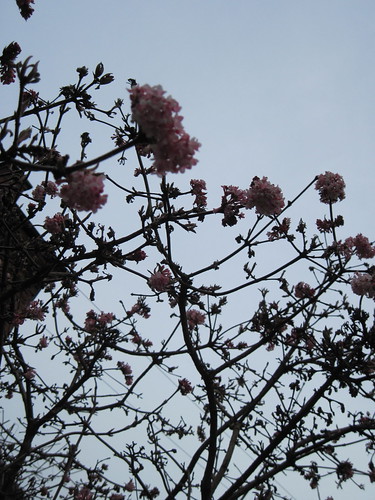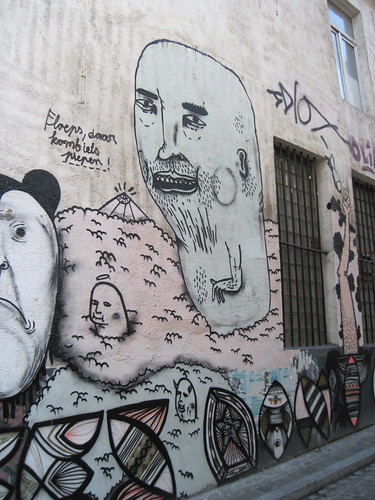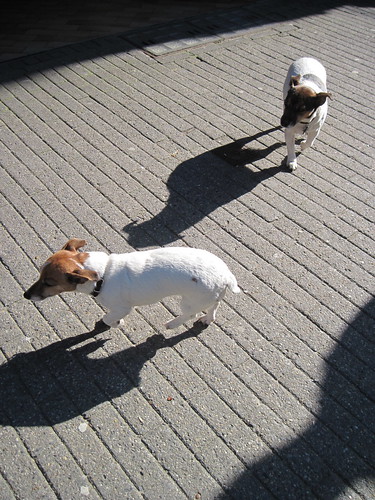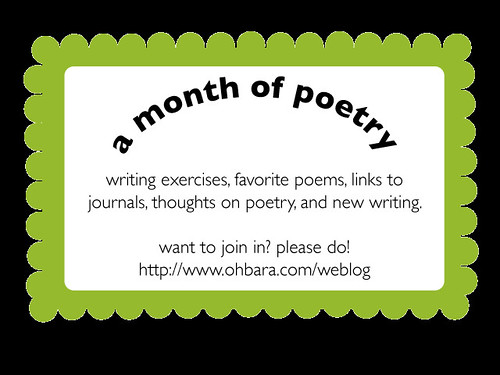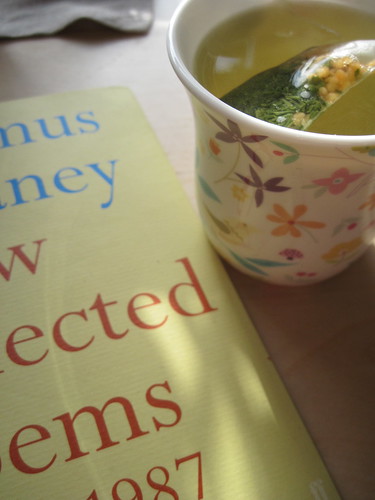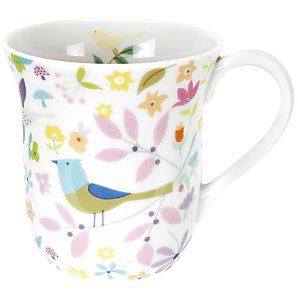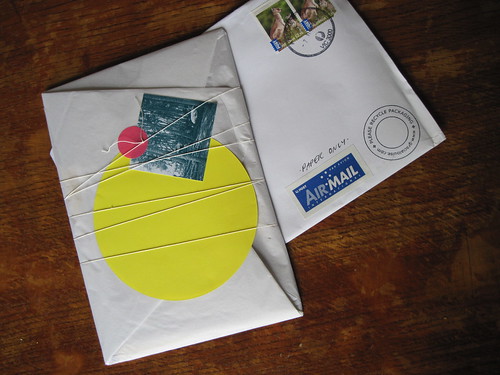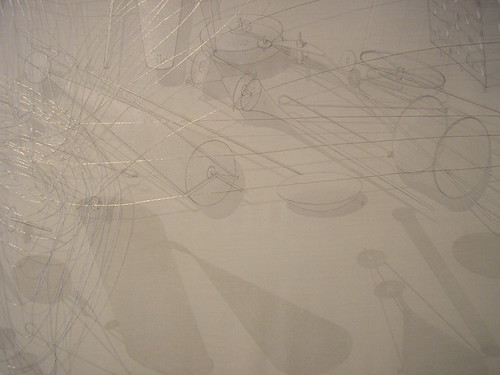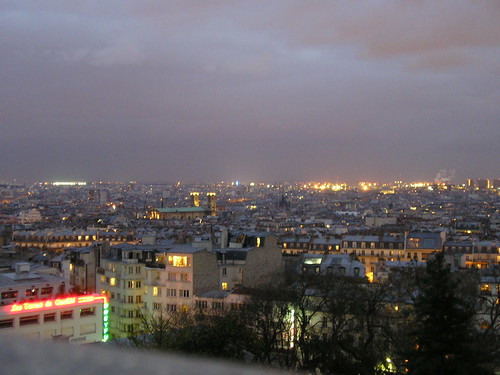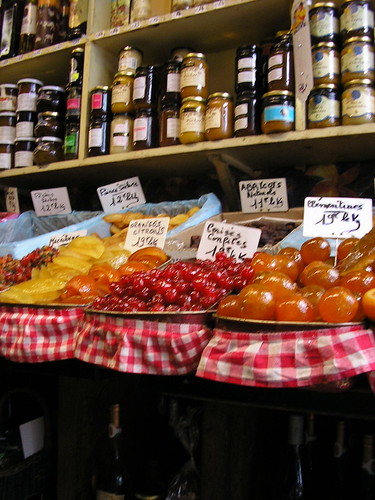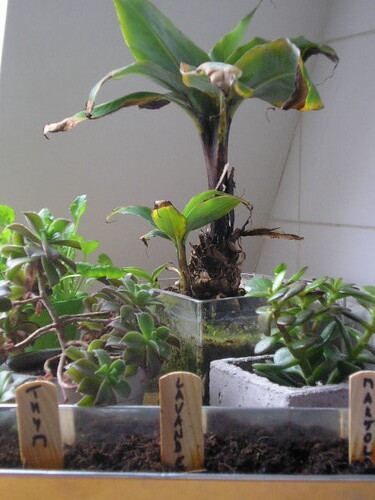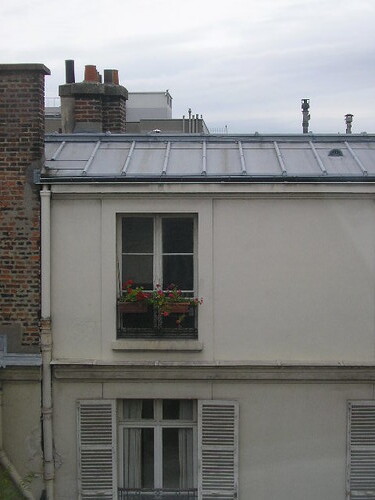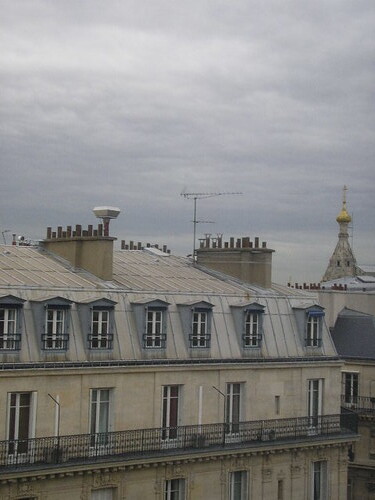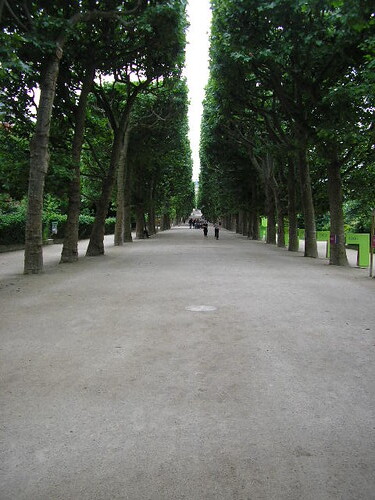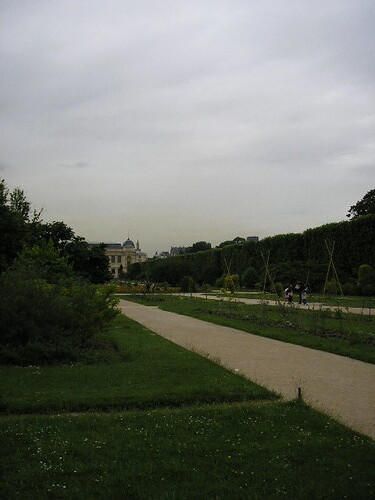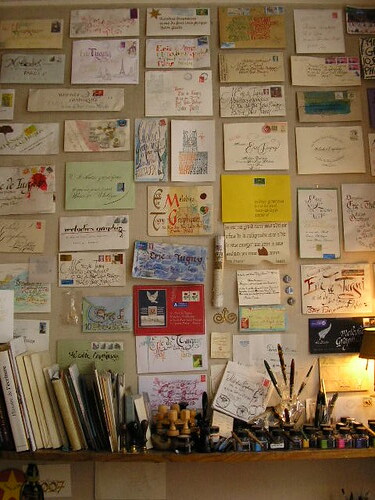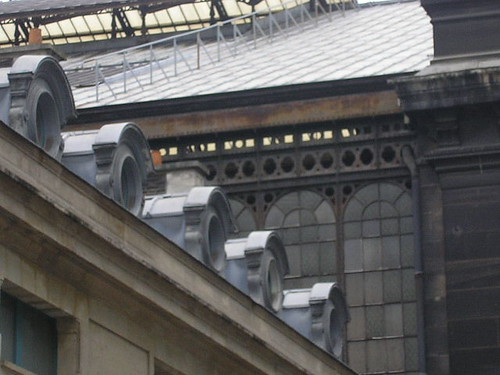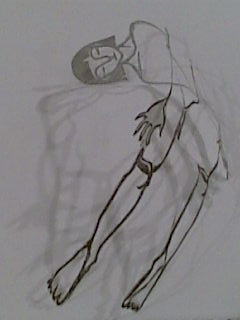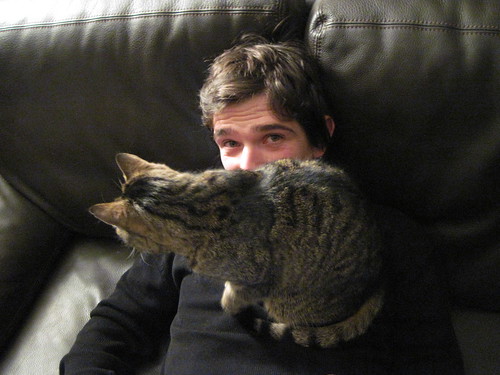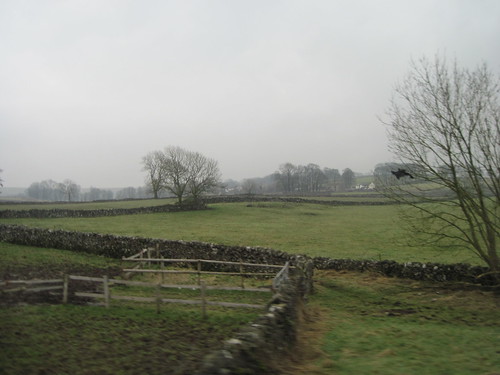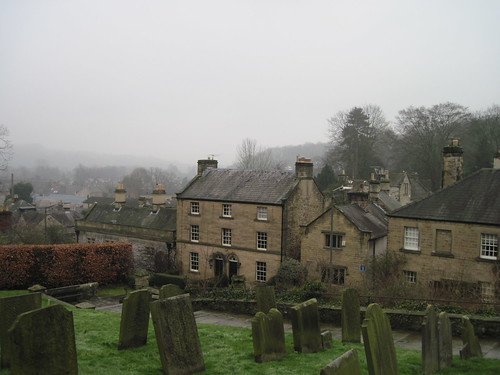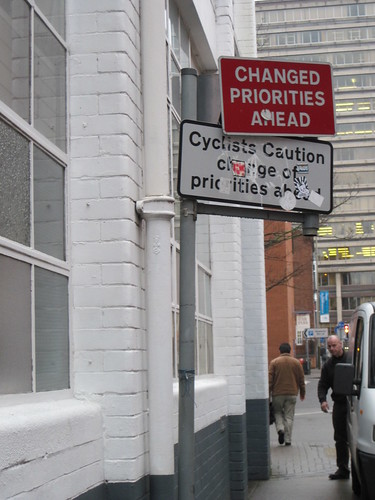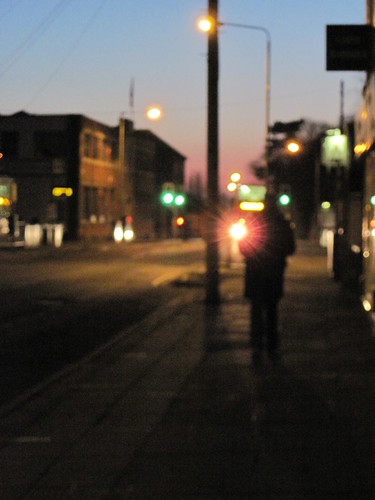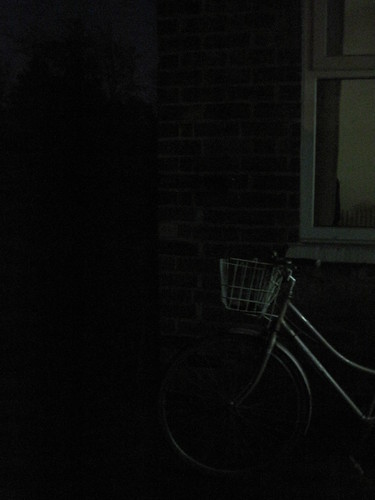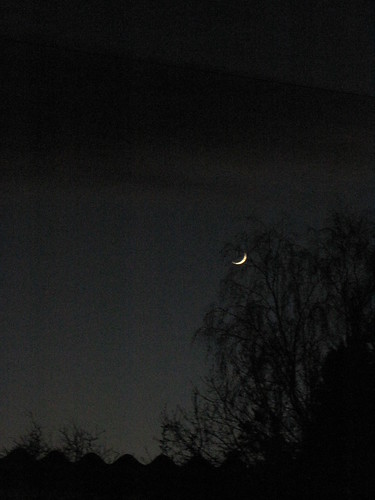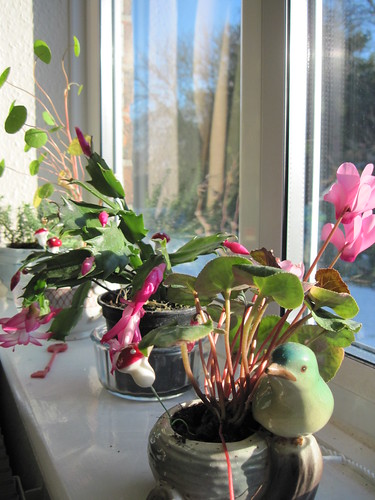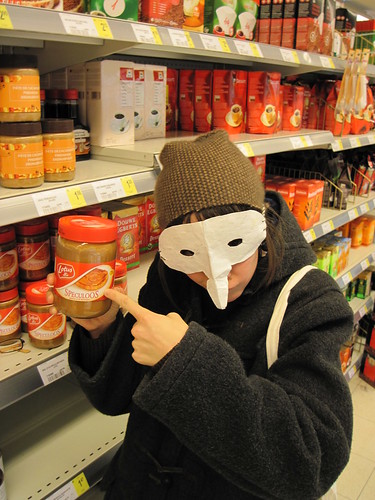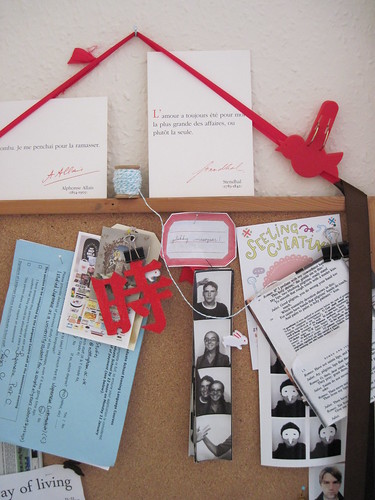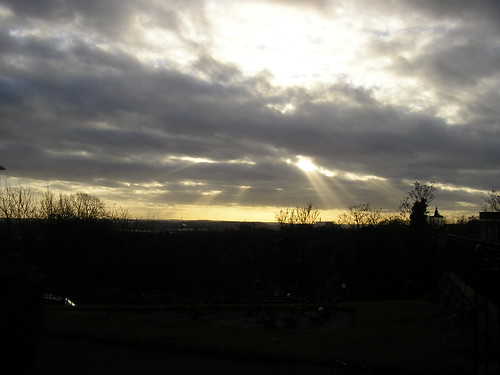(Bernard Moninot, Dessin sur soie n° 2 [sans titre], acrylic, graphite, and silver thread on canvas.
Dole Municipal Museum of Fine Arts, Dole, France, April 2007)
Right from the start this contradiction [between the supposed transcendence of art and the revelation thereby that art did indeed have a function and was therefore dependent on worldly reality] was aggravated by the need to provide a concrete idea of what autonomous Art meant. The mere impulse of abstracting Art from the given world was not enough to convey an image of its autonomy. After all, Art was claiming to be the realm of freedom in which lay man's only chance to ennoble himself; but if man was to be led to true humanity by way of Art, then this Art that was to underlie his education could scarcely remain an abstract idea. How, though, can one concretize something that only lives through the transcendence of its direct opposite?
The answer was: by collecting all the great artistic achievements of the past. Hence the emergence of that typically nineteenth century institution, the museum. Originally, collections had grown from the personal tastes of individuals; but now the multiplicity of tastes had to be unified into a single concept of taste which could take on normative authority. And so works of art were taken out of their sacred or profane settings and placed in the museum. It is this 'abstraction,' this uprooting of the work from its context, that underlies whatever we have now come to call a work of art. As a representative of a normative taste, it must exercise its effectiveness entirely through itself, and not through any purposes of functions. It is scarcely surprising that when Duchamp displayed a bottle rack in a museum, everyone was shocked. For the museum was the final triumph of autonomous Art, in that it took works of art out of their historical settings and endowed art of all periods with contemporaneity, so that from their various appearances there could be extrapolated a single, universally valid norm of Art.
Once again, however, there is no escaping the problem that the museum was in fact meant to dispose of. The museum is 'a late stage of all the successful representations in the history of art, which are preserved by a present that simultaneously distances itself from them, in order to enjoy its own uniqueness' [quoting Blumenberg, Arbeit am Mythos,p 382]. This enjoyment, however, brings to light precisely the factor that the unified collection of works sought to cover up--namely, the historical relativity of taste, as evinced by the individual works and also by the historical functions, sacred or profane, that they had to fulfill in their original settings. Thus, the contemporaneity with which the museum endows the works actually causes stress to be laid on their historical differences, the concealment of which was supposed to underpin the claim of Art to be autonomous.
From Prospecting: From Reader Response to Literary Anthropology, Johns Hopkins UP 1989, pp 204-205.
Labels: Art, Caught my interest, Theory, Thinking


